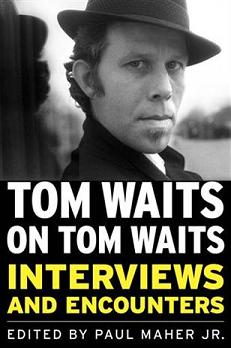Kirkus Reviews, founded in 1933, is a venerable institution in the media world. For more than 75 years, Kirkus has served as the industry bible for bookstore buyers, librarians, and ordinary readers alike. Now Popdose has joined the Kirkus Book Bloggers Network. Every week, a rotating crew of your favorite Popdose writers will grace the virtual pages of Kirkus Reviews Online, taking on the best — and sometimes the worst — in pop-culture and celebrity books.
This week we’re looking at a music legend who may have found his best, truest calling in the art of the interview…

A couple of years ago I went on a TV game show and made a bunch of money. And for a while after that, I was famous, in a brief and intensely local fashion. I talked to the local papers and the morning broadcast news, did a guest stint on drive-time radio. I was recognized in the street a couple of times. And I told my story, over and over, to family and friends and co-workers. And although this happened years ago, even now whenever I am introduced to someone new I know that soon I will have to tell the story again. And I don’t mind telling it, exactly. It’s nice that people are still interested. But it’s not something I do unasked. There’s no joy left in it for me; I’ve simply done it too many times, and I only tell my story now out of a sense of obligation.
Now, I was never as famous as Tom Waits, the uncategorizable American songwriter and character actor. (Not that Waits is even particularly famous, in the grand scheme of things; by his own — possibly apocryphal — account, he is more likely to be recognized at the town dump than in, say, a guitar factory.) Nor have I been at it as long. But I recognize the strategies on display in the new collection Tom Waits On Tom Waits: Interviews and Encounters, edited by Paul Maher Jr. and published this month by Chicago Review Press. In this compilation of highlights from almost forty years’ worth of press clippings and interview transcripts, Waits evades, deflects, and changes the subject. He will hold forth effusively on certain subjects, and dance around others. He will give away as little about his personal life as he can, employing a masterful array of stock phrases, segues, whimsy, non sequiturs, and outright lies.
He has gotten very good at it. In fact, the art of the interview has become a secondary mode of artistic expression for Waits. Without seeming rude or elusive, he co-opts interviewer after interviewer, steering and directing the conversation and revealing only as much as he wishes. ”My main instrument is vocabulary,” he says several times, and it is an instrument as well-deployed in conversation as in song.
Read the rest of this article at Kirkus Reviews!





Comments